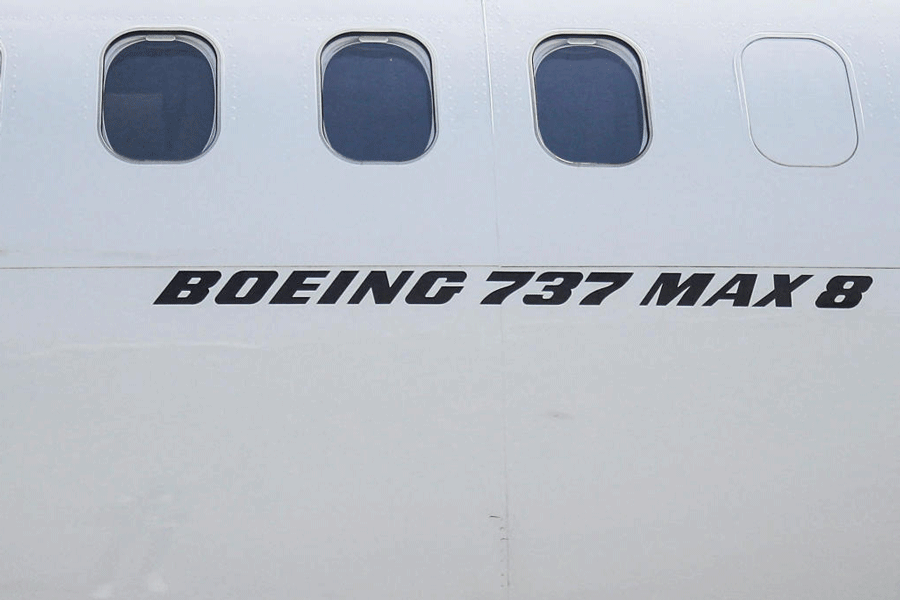The aerospace industry faces widening disruption from the blowout of a panel on an Alaska Airlines, after US regulators froze increases in the production of the 737 MAX, raising concerns over growth plans of airlines and suppliers worldwide.
The Federal Aviation Administration (FAA) announced the unprecedented intervention in production schedules late on Wednesday, in a double-edged decision that also saw the partial grounding of the MAX 9 model lifted once inspections are done.
The FAA said the order meant Boeing could continue producing MAX jets at the current monthly rate, but it could not increase that rate. It offered no estimate of how long the limitation would last and did not specify the number of planes Boeing can produce each month.
Boeing shares fell 2 per cent in US premarket trade. Shares of suppliers Spirit AeroSystems, fell 3.9 per cent and Howmet Aerospace fell 3.3 per cent before the bell, while British supplier Senior was down 3.3 per cent in regular trade.
The ability to resume flying was a relief to US MAX 9 operators Alaska Airlines and United Airlines, which had been forced to cancel thousands of flights and aim to begin returning the planes to service on Friday and Sunday, respectively.
But experts said the FAA’s response to “unacceptable” quality controls following the loss of a door plug at 16,000 feet on January 5 could delay some deliveries of new planes to airlines and hurt suppliers already reeling from an earlier MAX crisis and the pandemic.
That ripple effect started to emerge Thursday, as Southwest Airlines, a loyal Boeing customer, altered its fleet plans for 2024, saying it expected to take fewer deliveries of 737 MAX aircraft.
Boeing is seeking to increase production of its best-selling single-aisle 737 MAX family to keep pace with demand and close a gap in the jet market with European planemaker Airbus.
Analysts have expressed concerns that extra scrutiny of Boeing factories following the MAX 9 door plug blowout would temper production increases for the smaller and more widely sold MAX 8, a key source of cash for Boeing and many suppliers.











